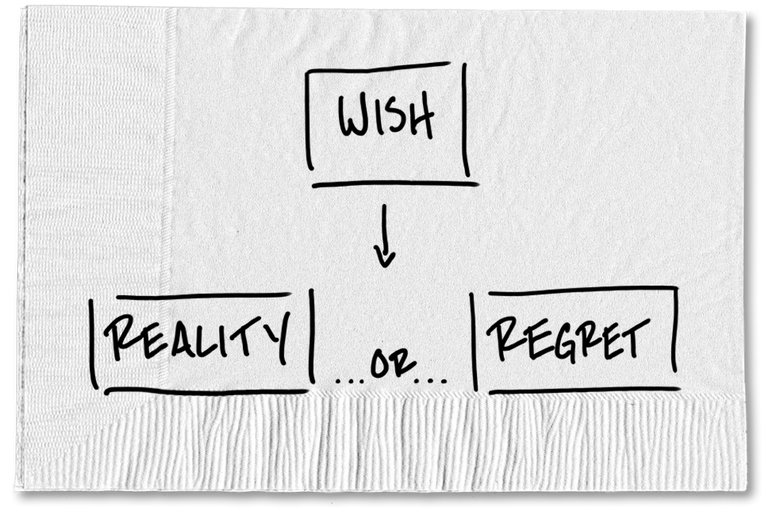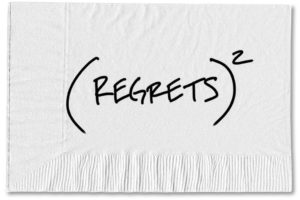A great NYT article on “Regrets” – their gift, their problem. How do people live without grace? In all relationships “regrets” enable us to be honest, proactive and move forward… with grace.
How to Turn Your Wishes Into Reality Instead of Regrets
Last week, I shared how scared and worried I felt at the thought of losing my wife after her accident. As frightening as that experience was, it also helped me reflect and decide that I didn’t want any more regrets.
I thought you might feel the same way, so I asked for your deathbed wish list. What things would you wish you could have done if you suddenly had very little time left?
Your emails were amazing! They reminded me a lot of the many messages I received when I wrote about getting permission to make major changes in our lives.
I asked a few of you to create a visual version of your wish lists, and you can see them here.
But I was left wondering: What’s next? What can we do to make sure that these wishes become reality instead of regrets?
Continue reading the main story
Advertisement
Continue reading the main story
For me, this process is pretty simple (but not easy):
1. Pick one thing on my list.
2. Decide today to do one thing that will get me closer to making that one thing a reality and further away from regret.
3. Do that one thing.
4. Repeat tomorrow.
5. Wake up in a year with fewer regrets.
The problem with this process is that it’s too simple. It lacks all the theatrics and drama of the hero’s journey.
In short, it sounds boring. Day after day, just doing small, little things.
I’m not into boring. The process reminds me of compound interest — that’s also boring, but it works.
However, I know of no other way. Believe me, I’ve tried.
Small, simple things done consistently over a long time produce meaningful results.
So, here is what I’m going to do. I’m finding one thing on my wish list, and I’m doing something about it today. Then, I’ll do it again tomorrow.
Will you join me?
Carl Richards, a certified financial planner, is the author of “The Behavior Gap” and “The One-Page Financial Plan.” His sketches and essays appear weekly.


